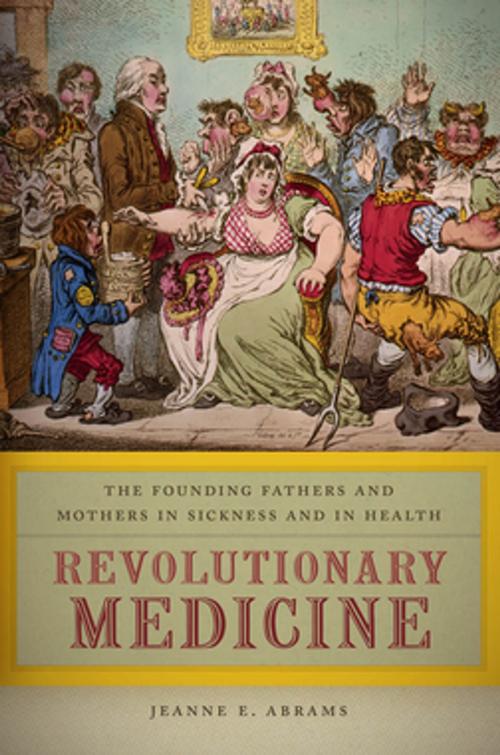Revolutionary Medicine
The Founding Fathers and Mothers in Sickness and in Health
Nonfiction, Health & Well Being, Medical, Reference, History, Americas, United States| Author: | Jeanne E. Abrams | ISBN: | 9780814759363 |
| Publisher: | NYU Press | Publication: | September 13, 2013 |
| Imprint: | NYU Press | Language: | English |
| Author: | Jeanne E. Abrams |
| ISBN: | 9780814759363 |
| Publisher: | NYU Press |
| Publication: | September 13, 2013 |
| Imprint: | NYU Press |
| Language: | English |
An engaging history of the role that George Washington, Thomas Jefferson, and Benjamin Franklin played in the origins of public health in America
Before the advent of modern antibiotics, one’s life could be
abruptly shattered by contagion and death, and debility from infectious
diseases and epidemics was commonplace for early Americans, regardless of
social status. Concerns over health affected the founding fathers and their
families as it did slaves, merchants, immigrants, and everyone else in North
America. As both victims of illness and national leaders, the Founders occupied
a unique position regarding the development of public health in America. Revolutionary Medicine refocuses the
study of the lives of George and Martha Washington, Benjamin Franklin, Thomas
Jefferson, John and Abigail Adams, and James and Dolley Madison away from the
usual lens of politics to the unique perspective of sickness, health, and
medicine in their era. For the founders, republican ideals fostered a reciprocal
connection between individual health and the “health” of the nation. Studying
the encounters of these American founders with illness and disease, as well as
their viewpoints about good health, not only provides us with a richer and more
nuanced insight into their lives, but also opens a window into the practice of
medicine in the eighteenth century, which is at once intimate, personal, and
first hand. Perhaps most importantly, today’s American public health
initiatives have their roots in the work of America’s founders, for they
recognized early on that government had compelling reasons to shoulder some new
responsibilities with respect to ensuring the health and well-being of its
citizenry.
The state of medicine and public healthcare today is still a
work in progress, but these founders played a significant role in beginning the
conversation that shaped the contours of its development.
An engaging history of the role that George Washington, Thomas Jefferson, and Benjamin Franklin played in the origins of public health in America
Before the advent of modern antibiotics, one’s life could be
abruptly shattered by contagion and death, and debility from infectious
diseases and epidemics was commonplace for early Americans, regardless of
social status. Concerns over health affected the founding fathers and their
families as it did slaves, merchants, immigrants, and everyone else in North
America. As both victims of illness and national leaders, the Founders occupied
a unique position regarding the development of public health in America. Revolutionary Medicine refocuses the
study of the lives of George and Martha Washington, Benjamin Franklin, Thomas
Jefferson, John and Abigail Adams, and James and Dolley Madison away from the
usual lens of politics to the unique perspective of sickness, health, and
medicine in their era. For the founders, republican ideals fostered a reciprocal
connection between individual health and the “health” of the nation. Studying
the encounters of these American founders with illness and disease, as well as
their viewpoints about good health, not only provides us with a richer and more
nuanced insight into their lives, but also opens a window into the practice of
medicine in the eighteenth century, which is at once intimate, personal, and
first hand. Perhaps most importantly, today’s American public health
initiatives have their roots in the work of America’s founders, for they
recognized early on that government had compelling reasons to shoulder some new
responsibilities with respect to ensuring the health and well-being of its
citizenry.
The state of medicine and public healthcare today is still a
work in progress, but these founders played a significant role in beginning the
conversation that shaped the contours of its development.















